WELCOME REMARKS BY ATTORNEY GENERAL AT LAUNCHING OF TRRC ON 15 OCTOBER 2018
Your Excellency, Adama Barrow,
President of the Republic of The Gambia;
Honourable Speaker of the National Assembly
My Lord, Chief Justice
Cabinet Colleagues
My Lords and Lady Justices of the Superior Courts
Honourable members of the National Assembly
Under-Secretary General for Legal Affairs &
United Nations Legal Counsel Miguel De Serpa Soares
Special Representative of the Secretary General Mohamed Ibn Chambas
Madam Prosecutor of the International Criminal Court
Fatou Bensouda
Assistant Secretary General for UN Peace Building
Oscar Fernandez Teranco
Regional Representative of the Office of High Commissioner for Human Rights in West Africa, Andrea Ori
Members of the Diplomatic & Consular Corps
Allow me to also recognize the presence in our midst of the Chairman of the United Nations Peace Building Commission Ambassador Ion Jinga. We are grateful to all of you for your presence here today. We are particularly grateful to His Excellency, the President. Your Excellency, your presence here today is yet another demonstration of your personal commitment to the process of peace and reconciliation in our country.
Your Excellency,
Distinguished guests,
Ours was a country where fear ruled for over two decades; where mothers dreaded that midnight knock on their doors which took away their sons and husbands forever; where civil servants went to work every morning saying goodbye to their families as if it was the last time they would see them ever again because coming back home to them was never a certainty; where torture was routine; where unarmed school children were gunned down in broad daylight; where women under detention were sexually molested and where sexual assault was used as a weapon to break and subjugate them; where summary executions and targeted murder were an option without consequences; and where ordinary citizens speak of their leaders only in whispers within the four walls of their bedrooms.
But The Gambian people had resolved that they had had enough of the killings, enough of the tortures, enough of the constant stream of new orphans and widows, and said NO MORE!!! On 1 December 2016, we stood tall among nations and showed the world that a people yearning for freedom could rise from the ashes of tyranny and transition from dictatorship to democracy through the ballot box. We are a living proof that it could be done.
Your Excellency,
Distinguished guests,
While the departure of the former President has clearly marked a significant turning point in The Gambia, he has left behind a legacy that included many of the factors or root causes of conflict: decades of authoritarian rule characterized by gross human rights violations including torture, enforced disappearance, arbitrary arrests, detention without trial, and murder perpetrated by State agents; a deeply polarized society based on ethnic and political considerations; ethnic hatred manifested through hateful propaganda targeted at certain ethnic communities; political persecution; impunity for crimes committed, and of course poverty.
Consequently, the period immediately following the former President’s departure exposed the new Government to its first and most pressing challenge: sustaining the peace in the country amidst a real risk of inter-communal clashes motivated by ethnic and political considerations that had simmered beneath the façade of peaceful co-existence for over two decades. This requires reassuring all sides of the ethnic and political divide that there shall be no witch-hunt against any person or communities for the excesses of the previous regime; while at the same time reassuring victims and their families that justice will be dispensed through due process of law, respect for the rights of all Gambians, and in a fair, transparent, and stable environment; a balance between, on the one hand, fostering social cohesion and encouraging national reconciliation through justice, and on the other hand, the rebuilding of a strong and robust democratic foundation anchored upon respect for the rule of law and human rights.
In this regard and over the long term, the Government has resolved to improve the country’s constitutional, legal and institutional framework in various governance areas in order to consolidate democracy and align the entire governance architecture with international justice and human rights standards. The priority of the government is to put in place a new and resilient architecture to uphold the highest standards when it comes to human rights, justice and rule of law.
This means embarking on an ambitious legal and constitutional reform process focusing primarily on the following five main areas:
- Constitutional Review
- Institutional Reform
- Criminal Justice & Media Law Reform
- Truth Reconciliation and Reparations
- Addressing Impunity
In embarking on these reform processes, we have adopted a new governance culture in which public consultations and inclusiveness play an integral part. This is borne out of the strong conviction that by giving the people ownership of these processes, they are more likely to accept the outcome. In the case of the TRRC, public participation at every stage of the process engendered greater legitimacy.
The national consultations for the establishment of the TRRC were led by myself and included representatives from civil society organizations, victims’ groups, women’s groups, youth groups, professional associations etc, We travelled around the country and held public consultations with key stakeholders in the communities. The idea of a truth commission received universal support from political, ethnic and religious communities across the country culminating in the unanimous enactment by the National Assembly of the Truth, Reconciliation and Reparations Commission Act 2017. The views and opinions expressed by communities during these consultations informed several key peculiar aspects of our TRRC process.
Your Excellency,
Distinguished guests,
With the victims at the center of our efforts, the primary objectives of the TRRC include:
- to investigate human rights violations and abuses committed during the past 22 years of former president Jammeh’s authoritarian rule;
- to foster social cohesion and encourage national reconciliation among Gambians;
- to recognize the rights and dignity of victims through the provision of appropriate reparations; and
- above all, to learn appropriate lessons in order to put in place effective mechanisms to prevent recurrence.
Your Excellency,
Distinguished guests,
The road to this launching event was long and challenging: the parallel and elaborate selection processes for the Commissioners, the establishment of the Regional Selection Panels, the public consultations and engagements at all levels, the direct involvement of thousands of Gambians in the selection process, the partnership with civil society and victims representatives, the training of over 50 media personnel, the nomination of 133 candidates from across the country, the public calls for objections, and the final appointment of the 11 ordinary men and women who have now been entrusted to preside over and facilitate reconciliation between victims and perpetrators. They include representatives from all 7 administrative regions of the country and the diaspora; from all 5 majority ethnic groups in the country; from the two main religious denominations; from the National Youth Council; and four women including the Deputy Chairperson.
Their task is arduous, but no doubt noble. I thank them for accepting this huge responsibility and I have no doubt that they will fully meet our expectations. I wish to thank in particular the Chairperson, Dr Lamin J. Sise, an illustrious son of this country who has accepted to come home and to give back to his country. Indeed our country may be small, and our country may be poor, but our country is blessed with a most fundamental resource, its sons and daughters.
Your Excellency,
Distinguished guests,
Today therefore marks the beginning of a process that will demonstrate to the world that we are capable of reconciliation as a nation, and that our conduct during and after the 2016 elections is a true reflection of our national character as a peace loving and progress people. A day like today gives us an opportunity to reflect further on the very sober words of our National Anthem that:
For The Gambia Our Homeland
We Strive and Work and Pray
That all May Live in Unity, Freedom and Peace Each Day
Let Justice Guide Our Actions
Towards the Common Good
And Join Our Diverse Peoples’ to Prove Man’s Brotherhood
Your Excellency,
Distinguished Guests,
Today also marks the beginning of a process that will show the world that The Gambia will not condone impunity for the most serious human rights violations and abuses. That is why the TRRC is not only mandated to recommend amnesty or grant reparations, but also to identify for prosecution only those who bear the greatest responsibility for these violations and abuses. This focus results from the reality that the prosecution of those generally considered the most culpable is likely to have the greatest symbolic value and will provide the greatest sense of justice for the largest number of victims.
But like in all democratic societies, we cannot agree on everything. There will always be divergent views. Our young democracy will be tested again and again for that is what will make it resilient. We must therefore regard the emergence of divergent views not as failure but as a proud mark of our maturing democracy.
Let us not forget that less than 2 years ago, there were thousands of us fleeing across the border to neighbouring countries to escape a potential outbreak of violent conflict that was both real and imminent. Therefore, peace and stability must come first above all other considerations. But we are also aware, that true peace, as Martin Luther King said, is not merely the absence of tension, but the presence of justice.And justice can of course mean different things to different victims: some demand retributive justice; others want restorative justice; yet other victims are content with only recognition of their victimhood by their tormentors. The process we are engaged in is therefore aimed at catering for all categories of victims in the country.
Your Excellency,
Distinguished guests,
What happened in The Gambia in December 2016 can no doubt inspire millions of others who yearn for freedom and democracy around the world.
But we also cannot afford to be complacent. Removing the former President from power, impossible as it seemed at times, may prove to be an easier task compared to the challenges that lie ahead of us as a nation. But we have made a clear choice. We have chosen liberty over tyranny, democracy over dictatorship, and reconciliation over revenge! The road to sustainable peace and democracy in The Gambia will be a long and bumpy ride but we shall not fail, we will not fail. We will persist and we will persevere. With every falter and every stumble, for there shall be many along the way to that Promised Land of freedom and justice which we all dreamed about on 1 December 2016, we shall lift ourselves up again and again more determined than ever before to see that dream come true. Too many have died for this dream and they shall not have died in vain. We must therefore view the new Gambia as a project for laying a solid foundation of democracy anchored upon respect for the rule of law, human rights and constitutional authority.
These are not just lofty ideals for us here in The Gambia, they are powerful ideas that carry great meaning for our people; ideas that could have prevented the deaths of school children on April 10/11 2000, of Basirou Barrow, Dot Faal, Gibril Saye, Koro Ceesay, Daba Marena, Haruna Jammeh, Saul Ndow, Mahawa Cham, Mamut Ceesay, Solo Sandengand many others, and the gruesome torture of many more. These ideals can save lives! The new Gambia is therefore about the kind of legacy this generation of Gambians will bequeath to future generations of Gambians.
In establishing the TRRC, we have been inspired by the wise words of Nelson Mandela at the end of apartheid in South Africa, that: “Instead of hatred and revenge, we chose reconciliation and nation building”. I therefore call upon the victims, and especially the perpetrators to take advantage of this unique opportunity to come forward and help us heal the wounds of a battered and bruised nation. Every generation has been tested. This is the challenge of our generation.
Your Excellency,
Distinguished guests,
I cannot conclude without thanking you, Your Excellency, for your constant support and strong commitment to our transitional justice process and for the establishment of the TRRC; I would also like to thank some of our main partners: the United Nations Peace Building Support Office (PBSO) and the Peace Building Commission (PBC) for their tremendous and continuous support to our transitional justice process; to the UNDP country office staff members; the UN TJPMU; the Office of High Commissioner for Human Rights; UNICEF; the International Center for Transitional Justice; the International Institute for Democracy and Electoral Assistance; Justice Rapid Response; the State of Qatar, the regional governors who coordinated the regional selection processes and the Regional Selection Panels that consulted with all 40 districts across the country to identify nominees for appointment as Commissioners; and more importantly, the staff members of the Ministry of Justice for their hard work and dedication; and to many others I cannot mention here today.
To conclude, allow me to re-echo the words of Saikou Jammeh of the GPU following the departure of the former President in January 2017. His words I believe capture the very essence of the dramatic political change that occurred in this country in December 2016: And he said this: “The sun is smiling on Gambia. Not because Jammeh has gone. Or Barrow is coming. But because Gambia has decided that Never Again”.
Indeed, NEVER AGAIN!!!!!!

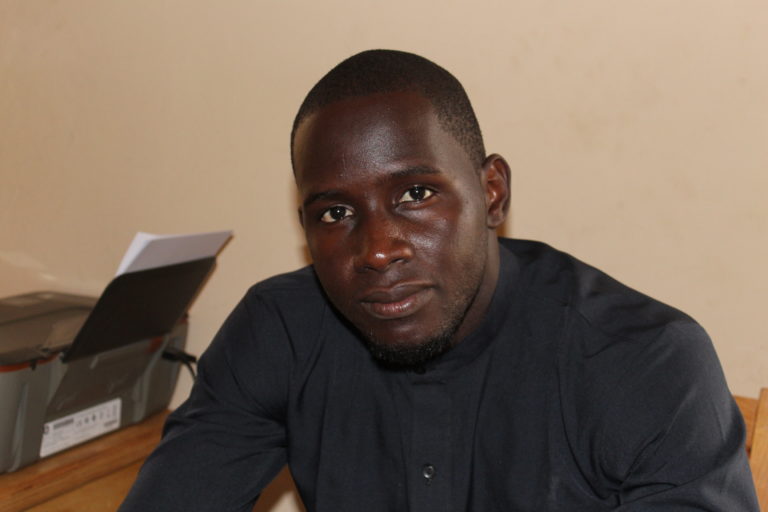

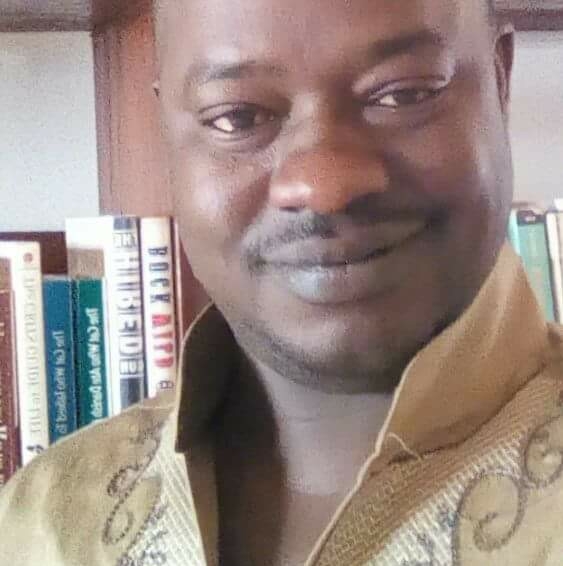
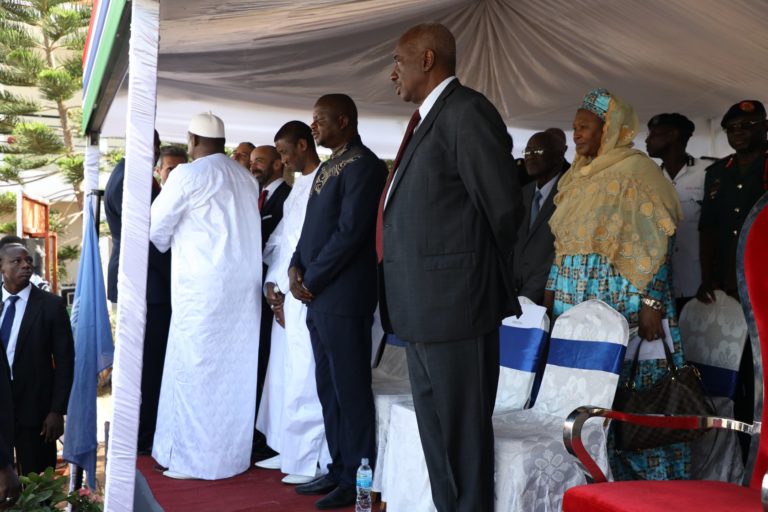

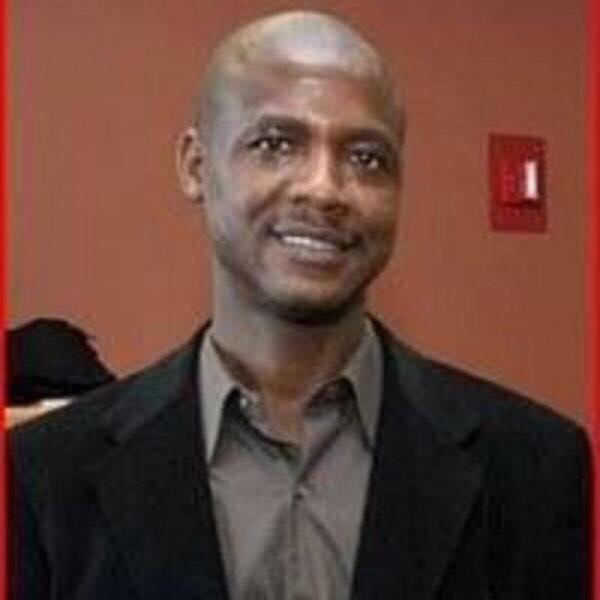
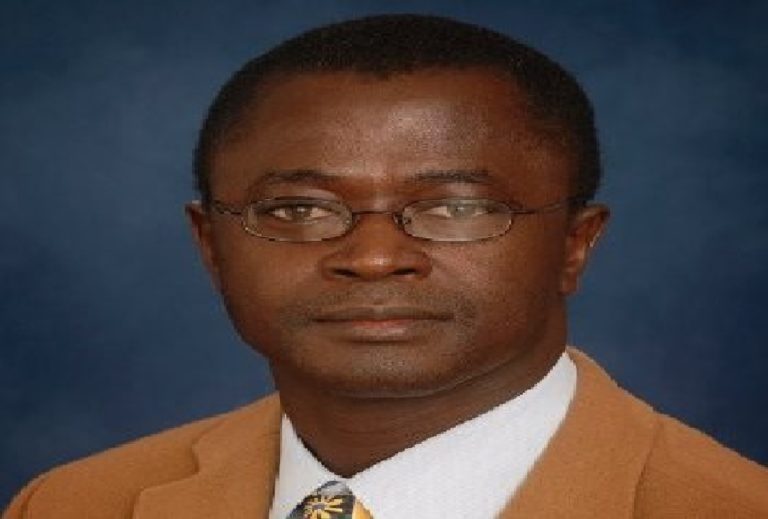
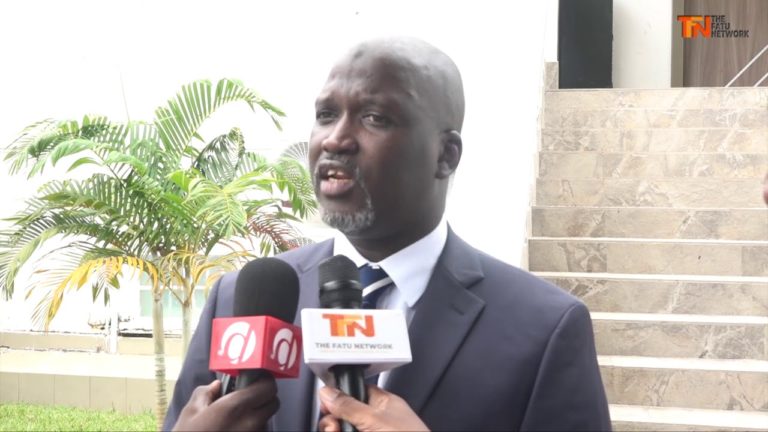

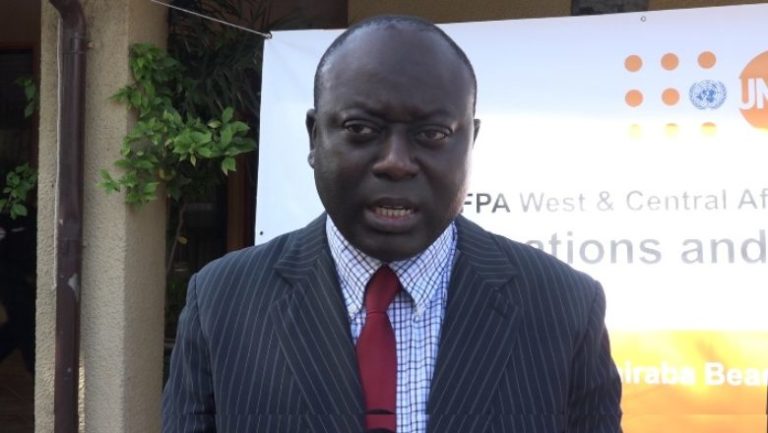
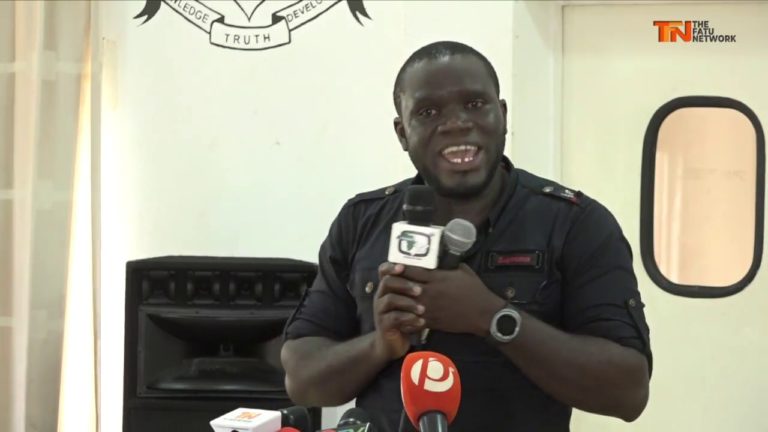
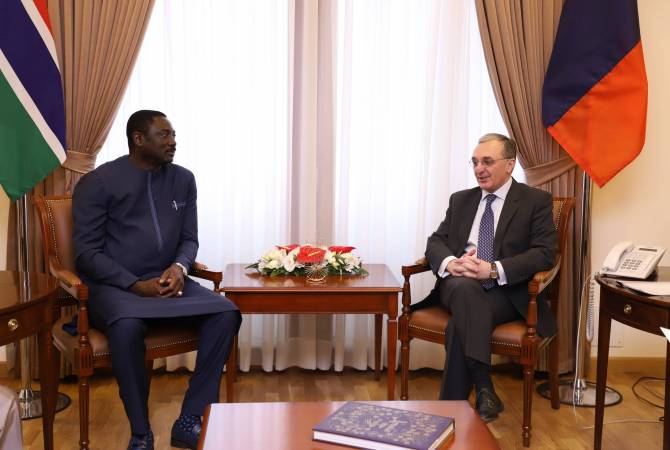

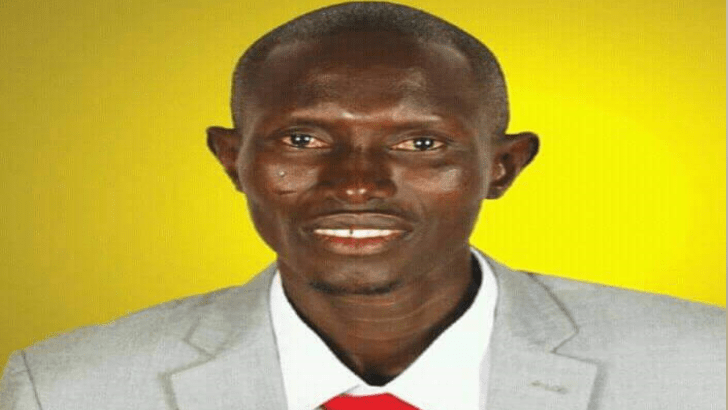

Statement By Justice Minister Tambadou On The Launching Of The TRRC
WELCOME REMARKS BY ATTORNEY GENERAL AT LAUNCHING OF TRRC ON 15 OCTOBER 2018
Your Excellency, Adama Barrow,
President of the Republic of The Gambia;
Honourable Speaker of the National Assembly
My Lord, Chief Justice
Cabinet Colleagues
My Lords and Lady Justices of the Superior Courts
Honourable members of the National Assembly
Under-Secretary General for Legal Affairs &
United Nations Legal Counsel Miguel De Serpa Soares
Special Representative of the Secretary General Mohamed Ibn Chambas
Madam Prosecutor of the International Criminal Court
Fatou Bensouda
Assistant Secretary General for UN Peace Building
Oscar Fernandez Teranco
Regional Representative of the Office of High Commissioner for Human Rights in West Africa, Andrea Ori
Members of the Diplomatic & Consular Corps
Allow me to also recognize the presence in our midst of the Chairman of the United Nations Peace Building Commission Ambassador Ion Jinga. We are grateful to all of you for your presence here today. We are particularly grateful to His Excellency, the President. Your Excellency, your presence here today is yet another demonstration of your personal commitment to the process of peace and reconciliation in our country.
Your Excellency,
Distinguished guests,
Ours was a country where fear ruled for over two decades; where mothers dreaded that midnight knock on their doors which took away their sons and husbands forever; where civil servants went to work every morning saying goodbye to their families as if it was the last time they would see them ever again because coming back home to them was never a certainty; where torture was routine; where unarmed school children were gunned down in broad daylight; where women under detention were sexually molested and where sexual assault was used as a weapon to break and subjugate them; where summary executions and targeted murder were an option without consequences; and where ordinary citizens speak of their leaders only in whispers within the four walls of their bedrooms.
But The Gambian people had resolved that they had had enough of the killings, enough of the tortures, enough of the constant stream of new orphans and widows, and said NO MORE!!! On 1 December 2016, we stood tall among nations and showed the world that a people yearning for freedom could rise from the ashes of tyranny and transition from dictatorship to democracy through the ballot box. We are a living proof that it could be done.
Your Excellency,
Distinguished guests,
While the departure of the former President has clearly marked a significant turning point in The Gambia, he has left behind a legacy that included many of the factors or root causes of conflict: decades of authoritarian rule characterized by gross human rights violations including torture, enforced disappearance, arbitrary arrests, detention without trial, and murder perpetrated by State agents; a deeply polarized society based on ethnic and political considerations; ethnic hatred manifested through hateful propaganda targeted at certain ethnic communities; political persecution; impunity for crimes committed, and of course poverty.
Consequently, the period immediately following the former President’s departure exposed the new Government to its first and most pressing challenge: sustaining the peace in the country amidst a real risk of inter-communal clashes motivated by ethnic and political considerations that had simmered beneath the façade of peaceful co-existence for over two decades. This requires reassuring all sides of the ethnic and political divide that there shall be no witch-hunt against any person or communities for the excesses of the previous regime; while at the same time reassuring victims and their families that justice will be dispensed through due process of law, respect for the rights of all Gambians, and in a fair, transparent, and stable environment; a balance between, on the one hand, fostering social cohesion and encouraging national reconciliation through justice, and on the other hand, the rebuilding of a strong and robust democratic foundation anchored upon respect for the rule of law and human rights.
In this regard and over the long term, the Government has resolved to improve the country’s constitutional, legal and institutional framework in various governance areas in order to consolidate democracy and align the entire governance architecture with international justice and human rights standards. The priority of the government is to put in place a new and resilient architecture to uphold the highest standards when it comes to human rights, justice and rule of law.
This means embarking on an ambitious legal and constitutional reform process focusing primarily on the following five main areas:
In embarking on these reform processes, we have adopted a new governance culture in which public consultations and inclusiveness play an integral part. This is borne out of the strong conviction that by giving the people ownership of these processes, they are more likely to accept the outcome. In the case of the TRRC, public participation at every stage of the process engendered greater legitimacy.
The national consultations for the establishment of the TRRC were led by myself and included representatives from civil society organizations, victims’ groups, women’s groups, youth groups, professional associations etc, We travelled around the country and held public consultations with key stakeholders in the communities. The idea of a truth commission received universal support from political, ethnic and religious communities across the country culminating in the unanimous enactment by the National Assembly of the Truth, Reconciliation and Reparations Commission Act 2017. The views and opinions expressed by communities during these consultations informed several key peculiar aspects of our TRRC process.
Your Excellency,
Distinguished guests,
With the victims at the center of our efforts, the primary objectives of the TRRC include:
Your Excellency,
Distinguished guests,
The road to this launching event was long and challenging: the parallel and elaborate selection processes for the Commissioners, the establishment of the Regional Selection Panels, the public consultations and engagements at all levels, the direct involvement of thousands of Gambians in the selection process, the partnership with civil society and victims representatives, the training of over 50 media personnel, the nomination of 133 candidates from across the country, the public calls for objections, and the final appointment of the 11 ordinary men and women who have now been entrusted to preside over and facilitate reconciliation between victims and perpetrators. They include representatives from all 7 administrative regions of the country and the diaspora; from all 5 majority ethnic groups in the country; from the two main religious denominations; from the National Youth Council; and four women including the Deputy Chairperson.
Their task is arduous, but no doubt noble. I thank them for accepting this huge responsibility and I have no doubt that they will fully meet our expectations. I wish to thank in particular the Chairperson, Dr Lamin J. Sise, an illustrious son of this country who has accepted to come home and to give back to his country. Indeed our country may be small, and our country may be poor, but our country is blessed with a most fundamental resource, its sons and daughters.
Your Excellency,
Distinguished guests,
Today therefore marks the beginning of a process that will demonstrate to the world that we are capable of reconciliation as a nation, and that our conduct during and after the 2016 elections is a true reflection of our national character as a peace loving and progress people. A day like today gives us an opportunity to reflect further on the very sober words of our National Anthem that:
For The Gambia Our Homeland
We Strive and Work and Pray
That all May Live in Unity, Freedom and Peace Each Day
Let Justice Guide Our Actions
Towards the Common Good
And Join Our Diverse Peoples’ to Prove Man’s Brotherhood
Your Excellency,
Distinguished Guests,
Today also marks the beginning of a process that will show the world that The Gambia will not condone impunity for the most serious human rights violations and abuses. That is why the TRRC is not only mandated to recommend amnesty or grant reparations, but also to identify for prosecution only those who bear the greatest responsibility for these violations and abuses. This focus results from the reality that the prosecution of those generally considered the most culpable is likely to have the greatest symbolic value and will provide the greatest sense of justice for the largest number of victims.
But like in all democratic societies, we cannot agree on everything. There will always be divergent views. Our young democracy will be tested again and again for that is what will make it resilient. We must therefore regard the emergence of divergent views not as failure but as a proud mark of our maturing democracy.
Let us not forget that less than 2 years ago, there were thousands of us fleeing across the border to neighbouring countries to escape a potential outbreak of violent conflict that was both real and imminent. Therefore, peace and stability must come first above all other considerations. But we are also aware, that true peace, as Martin Luther King said, is not merely the absence of tension, but the presence of justice.And justice can of course mean different things to different victims: some demand retributive justice; others want restorative justice; yet other victims are content with only recognition of their victimhood by their tormentors. The process we are engaged in is therefore aimed at catering for all categories of victims in the country.
Your Excellency,
Distinguished guests,
What happened in The Gambia in December 2016 can no doubt inspire millions of others who yearn for freedom and democracy around the world.
But we also cannot afford to be complacent. Removing the former President from power, impossible as it seemed at times, may prove to be an easier task compared to the challenges that lie ahead of us as a nation. But we have made a clear choice. We have chosen liberty over tyranny, democracy over dictatorship, and reconciliation over revenge! The road to sustainable peace and democracy in The Gambia will be a long and bumpy ride but we shall not fail, we will not fail. We will persist and we will persevere. With every falter and every stumble, for there shall be many along the way to that Promised Land of freedom and justice which we all dreamed about on 1 December 2016, we shall lift ourselves up again and again more determined than ever before to see that dream come true. Too many have died for this dream and they shall not have died in vain. We must therefore view the new Gambia as a project for laying a solid foundation of democracy anchored upon respect for the rule of law, human rights and constitutional authority.
These are not just lofty ideals for us here in The Gambia, they are powerful ideas that carry great meaning for our people; ideas that could have prevented the deaths of school children on April 10/11 2000, of Basirou Barrow, Dot Faal, Gibril Saye, Koro Ceesay, Daba Marena, Haruna Jammeh, Saul Ndow, Mahawa Cham, Mamut Ceesay, Solo Sandengand many others, and the gruesome torture of many more. These ideals can save lives! The new Gambia is therefore about the kind of legacy this generation of Gambians will bequeath to future generations of Gambians.
In establishing the TRRC, we have been inspired by the wise words of Nelson Mandela at the end of apartheid in South Africa, that: “Instead of hatred and revenge, we chose reconciliation and nation building”. I therefore call upon the victims, and especially the perpetrators to take advantage of this unique opportunity to come forward and help us heal the wounds of a battered and bruised nation. Every generation has been tested. This is the challenge of our generation.
Your Excellency,
Distinguished guests,
I cannot conclude without thanking you, Your Excellency, for your constant support and strong commitment to our transitional justice process and for the establishment of the TRRC; I would also like to thank some of our main partners: the United Nations Peace Building Support Office (PBSO) and the Peace Building Commission (PBC) for their tremendous and continuous support to our transitional justice process; to the UNDP country office staff members; the UN TJPMU; the Office of High Commissioner for Human Rights; UNICEF; the International Center for Transitional Justice; the International Institute for Democracy and Electoral Assistance; Justice Rapid Response; the State of Qatar, the regional governors who coordinated the regional selection processes and the Regional Selection Panels that consulted with all 40 districts across the country to identify nominees for appointment as Commissioners; and more importantly, the staff members of the Ministry of Justice for their hard work and dedication; and to many others I cannot mention here today.
To conclude, allow me to re-echo the words of Saikou Jammeh of the GPU following the departure of the former President in January 2017. His words I believe capture the very essence of the dramatic political change that occurred in this country in December 2016: And he said this: “The sun is smiling on Gambia. Not because Jammeh has gone. Or Barrow is coming. But because Gambia has decided that Never Again”.
Indeed, NEVER AGAIN!!!!!!